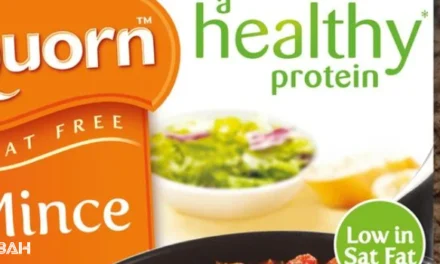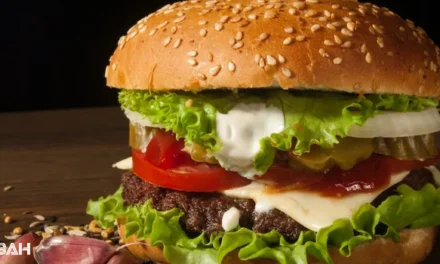As a food enthusiast and a firm believer in the importance of halal dietary choices, I embarked on a fascinating journey to uncover the halal status of chicken. In this comprehensive guide, I will delve into the intricacies of halal certification, the religious perspectives surrounding consuming chicken, and provide a definitive answer to whether chicken can be enjoyed with confidence by those adhering to halal principles.
A Close Look at What Goes Into Halal Chicken Production
Halal is an Arabic word that means “permissible” or “lawful” when used in relation to food. Halal chicken refers to poultry that has been raised and slaughtered according to Islamic dietary guidelines.
The main requirements for halal chicken include:
- How the chickens are raised
- Fed a natural diet
- Not given hormones or antibiotics
- Allowed to roam freely in open air
- How the chickens are slaughtered
- Done by hand rather than machine
- Blessed by reciting Tasmiya/Shahada
- Cut with extremely sharp knife for quick kill
- All blood drained from body
- Processing/preparation
- No contact with non-halal foods during processing
- Commitment to hygiene and food safety standards
Halal chicken is poultry that follows Islamic dietary guidelines. The requirements it needs to meet are focused on the wellbeing of the chicken, as well as the slaughtering method.
Halal chicken must meet all of the requirements in order to be certified halal. This ensures the chicken adheres to Islamic principles and is permissible for Muslims to consume.
Requirements for Halal Chicken
There are several requirements that must be met for chicken to be certified halal.
How the chickens are raised
- Fed a natural diet without any animal by-products or non-halal ingredients,
- Not given growth hormones or antibiotics,
- Allowed to roam freely in open air rather than confined to cages,
How the chickens are slaughtered
- Done by hand rather than by machine,
- Blessed by reciting Tasmiya or Shahada,
- Cut with an extremely sharp knife for a quick kill,
- All blood drained from the body after slaughter,
Processing/preparation
- No contact with non-halal foods during processing or preparation, .
- Commitment to hygiene and food safety standards,
Differences Between Halal and Non-Halal Chicken
There are some notable differences between halal chicken and conventional non-halal chicken in terms of health, taste, and cost.
Health and nutrition
- Proponents of halal chicken argue it is healthier due to the natural diet and lack of drugs/hormones administered to the chickens,
Because the animals are raised in better environments, don’t have antibiotics or hormones, and are fed natural foods, [proponents] argue that halal meat is tastier and healthier.
- Critics argue there is little nutritional difference between halal and non-halal chicken,
There are no nutritional differences between Halal chicken and conventionally processed chicken.
Taste
- Some argue halal chicken has a better texture and taste than conventional chicken because of the natural diet and humane slaughter method,
- Others say there is little discernible difference in taste between halal and non-halal chicken.
Cost
- Halal chicken tends to cost slightly more than conventional chicken because of the greater labor expenses involved,
- However, prices can vary greatly by region and supplier.
Benefits Of Eating Halal Chicken
Eating halal chicken, which is prepared according to Islamic dietary laws, may offer several benefits for individuals who follow these dietary guidelines. It’s important to note that the specific benefits can vary depending on individual beliefs and dietary preferences. Here are some potential benefits associated with eating halal chicken:
Adherence to Religious Beliefs: For Muslims, consuming halal food is a religious obligation. It represents obedience to Islamic dietary laws outlined in the Quran, which are important for maintaining one’s faith and spirituality.
Humane Treatment of Animals: Halal slaughtering requires animals to be treated with care and respect. This includes using a sharp blade to ensure a swift and humane slaughter, minimizing the animal’s pain and suffering.
Hygienic and Sanitary Practices: Halal food preparation typically involves rigorous cleanliness and hygiene standards. This can reduce the risk of foodborne illnesses and ensure safer consumption.
No Cross-Contamination: Halal meat is often prepared separately from non-halal meat to prevent cross-contamination. This can be important for individuals who want to avoid mixing halal and non-halal products.
Transparency and Traceability: Many halal food producers and suppliers prioritize transparency and traceability in their supply chains, allowing consumers to know the source and handling of the meat they consume.
Dietary Restrictions: Some people follow halal dietary guidelines due to allergies or sensitivities to certain additives, preservatives, or ingredients found in non-halal products. Eating halal chicken can help them avoid such substances.
Cultural and Social Aspects: In regions with a significant Muslim population, halal food plays a crucial role in cultural and social gatherings, fostering a sense of community and inclusivity.
Quality Assurance: In some cases, individuals perceive halal meat as higher quality due to the rigorous standards and practices involved in its production and processing.
It’s important to note that while there may be perceived benefits associated with halal chicken, these advantages are primarily relevant to those who adhere to Islamic dietary guidelines or have specific preferences for halal products. Others may not find these benefits as significant and may choose poultry products based on other factors such as taste, cost, or personal dietary restrictions.
Controversies Surrounding Halal Chicken
While halal chicken adheres to Islamic principles, there are some controversies surrounding its production and consumption.
Animal rights concerns about slaughter methods
Some animal rights activists argue that the slaughter methods used for halal chicken are inhumane,
There are animal welfare issues specifically around the way the chicken is slaughtered, because Halal requires animals to be conscious when killed.
However, proponents argue that when done properly, the method minimizes suffering.
Pushback against halal-only policies
In some cases, there has been pushback against schools, businesses, and other organizations adopting halal-only meat policies, with critics arguing people should have options,
Some people have protested against halal-only policies in community centres or schools. They say that where Muslim communities make up a small minority of the population, the majority should not be forced to eat halal meat.
Debate over labeling
There is ongoing debate about whether halal meat should be clearly labeled as such, so customers can make informed choices,
Critics argue that the lack of labeling prevents consumers from being able to make informed choices about their meat purchases.
Proponents argue that universal labeling is unnecessary and stigmatizing.
Frequently Asked Questions – What Is Halal Chicken
Halal chicken refers to chicken meat that is prepared and processed according to Islamic dietary laws, making it permissible for consumption by Muslims. The term “halal” means “permissible” in Arabic.
Is Chicken Halal?
Yes, chickens and chicken products including the meat, organs and eggs in their natural state are acceptable for Muslims to eat as part of a halal diet. Proper Islamic slaughtering techniques must be followed.
How is halal chicken different from regular chicken?
Halal chicken is processed and handled in a specific manner according to Islamic law, ensuring that it meets the dietary requirements of Muslims. The method of slaughter, for instance, is different, and specific guidelines must be followed to certify it as halal.
What are the requirements for chicken to be considered halal?
For chicken to be considered halal, it must meet several criteria:
- The chicken must be alive and healthy at the time of slaughter.
- The slaughter must be performed by a Muslim who is of sound mind and has the necessary knowledge and expertise in Islamic ritual slaughter.
- The chicken must be slaughtered by cutting the throat, windpipe, and blood vessels in the neck, ensuring a quick and humane method of slaughter.
- The name of Allah must be pronounced at the time of slaughter.
- All other Islamic dietary laws and regulations must be adhered to during the processing and handling of the chicken.
What is the difference between halal and kosher meat?
Halal and kosher meat share some similarities, as both adhere to specific religious dietary laws. However, there are differences in the method of slaughter and other specific requirements. Halal meat is prepared according to Islamic law, whereas kosher meat is prepared according to Jewish dietary laws.
Is eating halal chicken obligatory for Muslims?
Eating halal chicken is not obligatory for Muslims, but it is highly recommended. Muslims are encouraged to consume halal food as it is believed to be a healthier and more spiritually beneficial choice.
Are there any benefits of eating halal chicken?
There are several potential benefits of eating halal chicken. Halal meat is believed to be fresher, cleaner, and of higher quality. The specific method of slaughter is thought to remove most of the blood from the meat, resulting in a cleaner and more hygienic product. Additionally, the dietary regulations followed during the processing of halal meat may contribute to a healthier and more humane food production system.
How can I find halal chicken?
You can find halal chicken at any muslim butchers
Conclusion
In summary, halal chicken refers to poultry that has been raised and slaughtered according to traditional Islamic practices.
The main requirements as outlined include:
- The chickens must eat a vegetarian diet and not be given hormones or antibiotics
- They must be allowed to roam freely outdoors
- They must be hand slaughtered by a Muslim reciting a prayer
- All blood must be drained from the body
Halal only applies to meat from permitted sources slaughtered in a prescribed manner.
While halal chicken adheres to the values of Islam, there are ongoing debates around animal welfare, mandatory policies, and labeling that continue to surround halal poultry production and consumption. Nevertheless, halal chicken remains an important part of diets for observant Muslims around the world.





